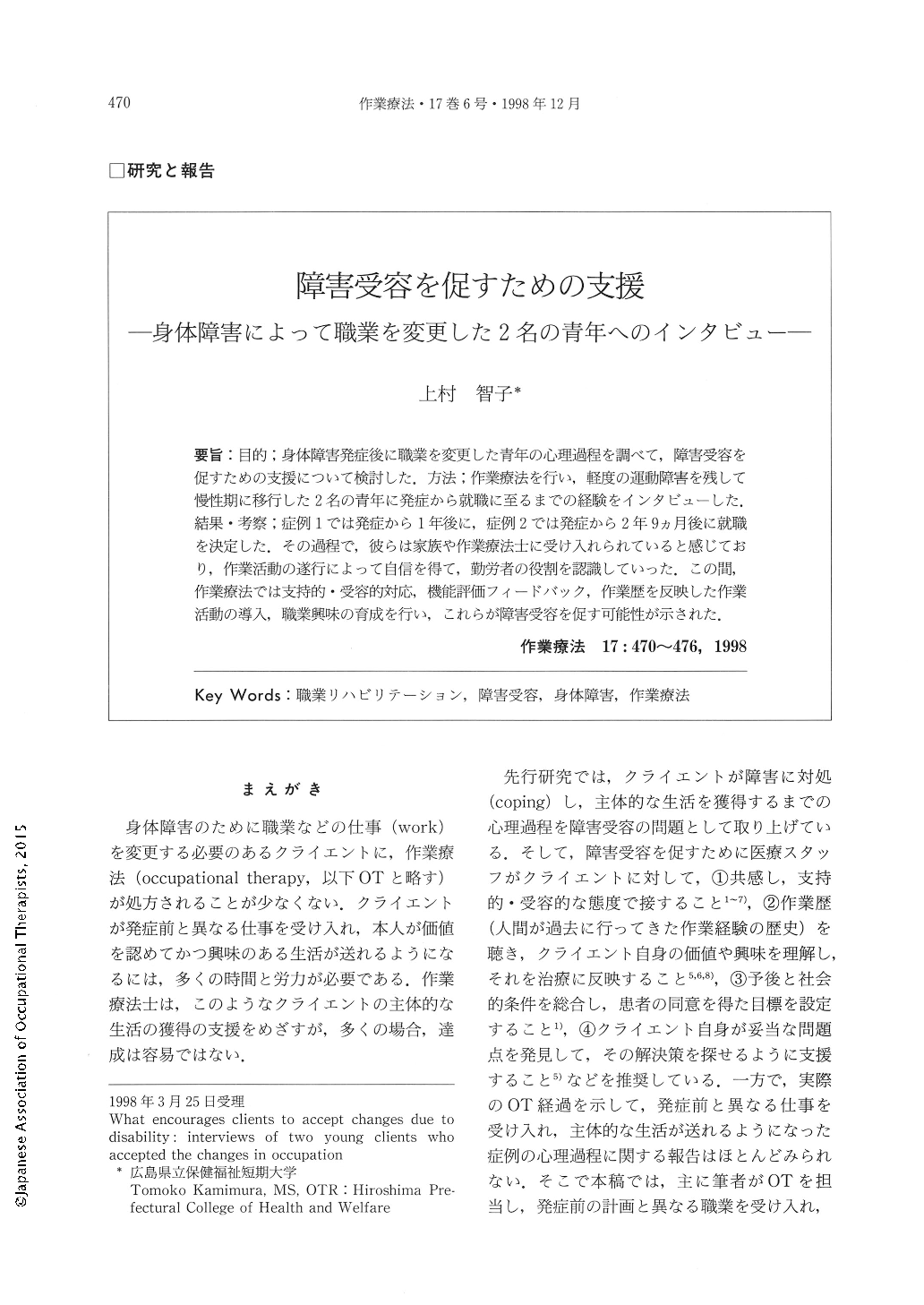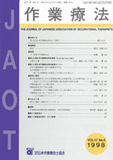Japanese
English
- 販売していません
- Abstract 文献概要
- 1ページ目 Look Inside
- 参考文献 Reference
要旨:目的;身体障害発症後に職業を変更した青年の心理過程を調べて,障害受容を促すための支援について検討した.方法;作業療法を行い,軽度の運動障害を残して慢性期に移行した2名の青年に発症から就職に至るまでの経験をインタビューした.結果・考察;症例1では発症から1年後に,症例2では発症から2年9ヵ月後に就職を決定した.その過程で,彼らは家族や作業療法士に受け入れられていると感じており,作業活動の遂行によって自信を得て,勤労者の役割を認識していった.この間,作業療法では支持的・受容的対応,機能評価フィードバック,作業歴を反映した作業活動の導入,職業興味の育成を行い,これらが障害受容を促す可能性が示された.
Objective: To understand what encourages clients to accept a change in occupation as a result of disability was the purpose of this report. Method: The author interviewed two young clients about their experiences from the time of onset of physical disability until finding new employment. Occupational therapy was mainly done by the author. At the time of the interviews, slight finger dexterity deficits that resulted from a Guillain-Barre syndrome and Moyamoya disease were the only remaining problems. One client had been employed in a company while attending university at night, and one year after falling ill, he graduated university and was accepted for employment at another company. The other client had attended music school, and one year and seven months after the onset of her illness, she left school. She got a part-time job two years and nine months post-onset. Results & Discussion : At the same time they were able to accept their disabilities, the clients felt that they were accepted by their families and the occupational therapist, which, in addition to performing activities (physical exercise and handicrafts), helped them gain self-confidence. As a result they both realized the importance of working and decided to return to work. Clients may be encouraged to accept changes due to disability through our supportive attitudes, feedback of functional evaluations, encouragement in performing activities that reflect their occupational histories, and promoting their vocational interests.

Copyright © 1998, Japanese Association of Occupational Therapists. All rights reserved.


